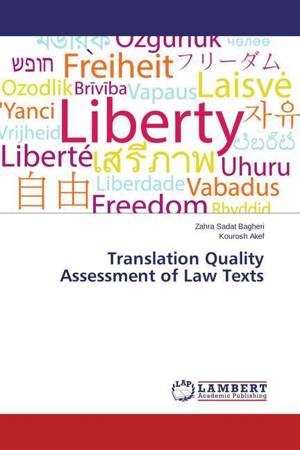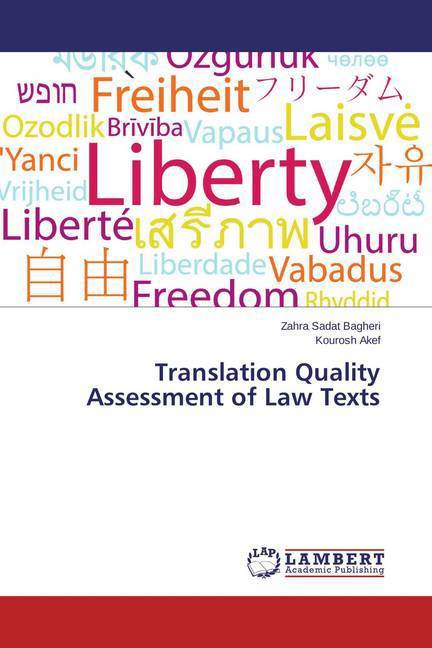
- Afhalen na 1 uur in een winkel met voorraad
- Gratis thuislevering in België vanaf € 30
- Ruim aanbod met 7 miljoen producten
- Afhalen na 1 uur in een winkel met voorraad
- Gratis thuislevering in België vanaf € 30
- Ruim aanbod met 7 miljoen producten
Zoeken
€ 64,45
+ 128 punten
Omschrijving
From among all kinds of translated texts, the appropriateness of the translation of law texts seems to be demanding due to their own especial language and structure. Therefore, in this book House's (1997) translation quality assessment (TQA) model is applied on two different translations of the book'Law Made Simple' they are compared with each other ,by the authors and two raters other than the authors, to see which one is more qualified and also develop a practical, reliable, and easy to implement criteria of assessing the translation quality of law texts. As a result, the authors and the raters came to this conclusion that although in both translations there were some overtly erroneous errors, Sajiri's translation seems to be more qualified and appropriate than Arian Klor's translation due to the fact that it has kept the track of original closely.Besides, the results reveal that House's TQA model can be a reliable and applicable model for the assessment of law text translations.
Specificaties
Betrokkenen
- Auteur(s):
- Uitgeverij:
Inhoud
- Aantal bladzijden:
- 112
- Taal:
- Engels
Eigenschappen
- Productcode (EAN):
- 9783659785733
- Verschijningsdatum:
- 25/09/2015
- Uitvoering:
- Paperback
- Afmetingen:
- 150 mm x 220 mm
- Gewicht:
- 166 g

Alleen bij Standaard Boekhandel
+ 128 punten op je klantenkaart van Standaard Boekhandel
Beoordelingen
We publiceren alleen reviews die voldoen aan de voorwaarden voor reviews. Bekijk onze voorwaarden voor reviews.








